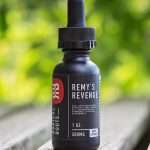Today I’m thrilled to share with you valuable insights about healing leaky gut syndrome, a condition that affects many individuals seeking optimal health.
As a doctor of Chinese medicine, my goal is to empower you with knowledge and provide practical solutions to heal your gut and reclaim your well-being.
In this article, we will explore the causes, symptoms, and treatments for leaky gut, as well as dietary and supplement recommendations. Let’s embark on a journey toward gut health restoration together!
Understanding Leaky Gut Syndrome:
Leaky gut syndrome, also known as increased intestinal permeability, occurs when the lining of the digestive tract becomes compromised, allowing undigested food particles, toxins, and bacteria to leak into the bloodstream. This can trigger an immune response, leading to a wide range of symptoms and potentially contributing to various health issues.
Causes of Leaky Gut:
Several factors can contribute to the development of leaky gut syndrome. These include:
- Poor Diet: Diets high in processed foods, refined sugars, gluten, and dairy products can disrupt the gut barrier and promote inflammation.
- Chronic Stress: Prolonged stress can impact gut health by affecting digestion, reducing beneficial gut bacteria, and compromising the integrity of the intestinal lining.
- Medications: Long-term use of non-steroidal anti-inflammatory drugs (NSAIDs), antibiotics, and certain medications may disrupt the balance of gut microorganisms and contribute to a leaky gut.
Remy’s Revenge Tincture
Dynamic support for the brain and the body. This powerful formula can help settle dis-harmonies in the body that present as “wind disorders.”
Symptoms of Leaky Gut Syndrome:
Recognizing the signs and symptoms of a leaky gut can be essential for early intervention and healing. Common symptoms include:
- Digestive issues such as bloating, gas, and diarrhea.
- Food sensitivities or allergies.
- Fatigue, brain fog, and difficulty concentrating.
- Skin problems like acne, eczema, or rashes.
- Joint pain and inflammation.
- Mood disorders, including anxiety and depression.
Healing Leaky Gut: Lifestyle and Dietary Recommendations:
Addressing leaky gut involves adopting a holistic approach that combines lifestyle modifications and dietary changes. Here are some recommendations:
- Eliminate Trigger Foods: Identify and eliminate foods that may contribute to inflammation and gut irritation, such as processed foods, gluten, dairy, and refined sugars.
- Embrace Gut-Friendly Foods: Incorporate nutrient-rich, whole foods into your diet, including fruits, vegetables, lean proteins, healthy fats, and fermented foods like sauerkraut, kefir, and kimchi.
- Reduce Stress: Engage in stress-reducing practices like meditation, deep breathing exercises, yoga, and regular physical activity to support gut healing.
Leaky Gut Supplements:
In addition to dietary changes, certain supplements can aid in healing leaky gut. Here are a few recommendations:
- Probiotics: Beneficial bacteria like Lactobacillus and Bifidobacterium can help restore the balance of gut flora and support digestive health.
- L-Glutamine: This amino acid plays a vital role in repairing the gut lining and reducing intestinal permeability.
- Quercetin: A natural flavonoid with anti-inflammatory properties, quercetin can help reduce gut inflammation and promote gut healing.
Remember, it’s important to consult with a healthcare professional, including a Chinese medicine practitioner, to determine the appropriate supplements and dosages based on your individual needs.
Conclusion:
By understanding the causes, symptoms, and treatments for leaky gut syndrome, you can take proactive steps toward healing your gut and restoring overall well-being. Embrace a gut-friendly diet, manage stress levels, and consider incorporating supportive supplements.
Remember, healing takes time and patience, but with a holistic approach, you can embark on a transformative journey toward optimal gut health and a happier, healthier you.
Sources:
- Gąsińska, A., et al. (2020). Intestinal Permeability and Gut-Derived Inflammation in Autism Spectrum Disorder: An Update. Journal of Clinical Medicine, 9(5), 1717.
- Lambert, G. P. (2009). Stress-Induced Gastrointestinal Barrier Dysfunction and Its Inflammatory Effects. Journal of Animal Science, 87(14 Suppl), E101-E108.
- Šmulja, M., et al. (2020). Gut Barrier in Health and Disease: Focus on Childhood. European Journal of Pediatrics, 179(4), 605-615.
- Sikora, M., et al. (2020). The Role of Dietary Fiber in Inflammatory Bowel Disease: A Systematic Review and Meta-Analysis of Animal-Based Studies. Nutrients, 12(10), 2996.
- Vojdani, A., et al. (2017). The Role of L-Glutamine in Leaky Gut Syndrome and Autoimmune Diseases. Clinical Nutrition, 36(4), 1070-1074.






